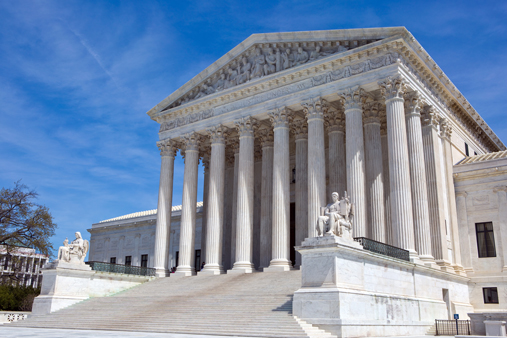EPA issued a proposed rule on Feb. 22, 2013, that would require 36 states to revise the startup, shutdown, and malfunction rules in their Clean Air Act State Implementation Plans (SIPs). The proposed rule clarifies EPA’s existing startup, shutdown, and malfunction (SSM) policy and addresses specific reforms EPA is considering in each of the affected states. As a general matter, the proposed rule would require states to remove SIP provisions allowing exemptions from emission limitations during SSM events. SSM exemptions are found in many companies’ Clean Air Act operating permits, so the proposed SIP revisions could have far-reaching implications. EPA is accepting comments on the rule until March 25, 2013.
The proposed rule was prompted by a petition for rulemaking that the Sierra Club filed with EPA on June 30, 2011. That petition was the outgrowth of Sierra Club’s successful challenge to EPA’s SSM rules for National Emission Standards for Hazardous Air Pollutants (NESHAPs). Sierra Club v. EPA, 551 F.3d 1019 (D.C. Cir. 2008). That decision cast doubt on whether SSM exemptions are lawful in any context and subsequently Sierra Club petitioned EPA to issue a “SIP-call” requiring 39 states to revise their SSM rules.
In its petition, Sierra Club made the following requests, and EPA made the following responses:
|
Sierra Club Request |
EPA Response |
|
For EPA to rescind its SSM guidance interpreting the Clean Air Act to allow an affirmative defense in SIPs for excess emissions during SSM events. |
EPA granted the petition in part and noted there is no affirmative defense for violations of emission limits during planned events (i.e., startup and shutdown), but EPA denied the petition in part noting the Clean Air Act does allow for an affirmative defense for violations of emission limits during unplanned events (i.e., malfunctions).
|
|
For EPA to find SIPs containing an SSM exemption do not comply with the Clean Air Act and issue a SIP-call to states with such exemptions.
|
EPA granted the petition in part, agreeing with Sierra Club that automatic exemptions from emission limits during SSM events are impermissible, and EPA agreed to propose a SIP-call for 36 out of the 39 states Sierra Club argued had impermissible SSM rules. EPA denied the petition to amend the SIP rules in Idaho, Oregon, and Nebraska.
|
|
For EPA to require state SSM rules to unambiguously remove any SSM exemptions and for EPA to no longer rely on state letters of interpretation about how state SSM rules comply with federal requirements. |
EPA granted the petition in part agreeing that state SSM rules should clearly remove SSM exemptions, but EPA denied Sierra Club’s request that EPA no longer rely on states’ interpretative letters regarding their SSM rules.
|
The requirements that would be imposed on each state are unique, but as a general matter the proposed rule would require states to (1) eliminate SSM exemptions, (2) eliminate startup and shutdown affirmative defenses, and (3) revise malfunction affirmative defenses so they are consistent with the federal policy on affirmative defenses for malfunctions.
For example, in the EPA Region V states subject to the proposed rule, EPA would require the following:
1. Illinois
- Revise Ill. Admin. Code 35 § 201.261, Ill. Admin. Code 35 § 201.262, and Ill. Admin. Code 35 § 201.265, which EPA states “can be read to create exemptions by authorizing a state official to determine in the permitting process that the excess emissions during startup and malfunction will not be considered violations of the applicable emission limitations.” 78 Fed. Reg. at 12515.
2. Indiana
- Revise 326 Ind Admin. Code 1-6-4(a), which EPA states “on its face [allows] for discretionary exemptions from otherwise applicable SIP emission limitations.” 78 Fed. Reg. at 12517.
3. Michigan
- Revise Mich. Admin. Code r. 336.1916, which EPA states “provides for an affirmative defense to violations of applicable emission limitations during startup and shutdown events.” 78 Fed. Reg. at 12518.
4. Minnesota
- Revise Minn. R. 7011.1415, which EPA states “allows for automatic exemptions from the otherwise applicable SIP emission limitations and requirements.” Id.
5. Ohio
- Revise Ohio Admin. Code 3745-15-06(A)(3), Ohio Admin. Code 3745-17-07(A)(3)(c), Ohio Admin. Code 3745-17-07(B)(11)(f), and Ohio Admin. Code 3745-14-11(D), which EPA states “allow for exemptions from the otherwise applicable SIP emission limitations.” 78 Fed. Reg. at 12520.
- Revise Ohio Admin. Code 3745-15-06(C), which EPA states allows “for [SSM] exemptions through a state official’s unilateral exercise of discretionary authority that is insufficiently bounded and includes no additional public process at the state or federal level.” Id.
EPA has scheduled a hearing to discuss these changes and those in the other affected thirty-one states subject to the proposed rule on March 12, 2013 at the EPA Ariel Rios East building, Room 1153, 1301 Constitution Avenue, Washington, DC 20560.
A copy of the proposed EPA rule is available online at http://www.gpo.gov/fdsys/pkg/FR-2013-02-22/pdf/2013-03734.pdf.
As noted earlier, comments are due to EPA by March 25, 2013.
For more information, contact the Barnes & Thornburg attorney with whom you work or one of the following attorneys in the firm’s Environmental Law Department: Tony Sullivan at tony.sullivan@btlaw.com or 317-231-7472; Charles Denton at charles.denton@btlaw.com or 616-742-3974; Michael Elam at michael.elam@btlaw.com or 312-214-5630; Joel Bowers at joel.bowers@btlaw.com or 574-237-1287, and Timothy Haley at timothy.haley@btlaw.com or 317-231-6493.
© 2013 Barnes & Thornburg LLP. All Rights Reserved. This page, and all information on it, is proprietary and the property of Barnes & Thornburg LLP. It may not be reproduced, in any form, without the express written consent of Barnes & Thornburg LLP.
This Barnes & Thornburg LLP publication should not be construed as legal advice or legal opinion on any specific facts or circumstances. The contents are intended for general informational purposes only, and you are urged to consult your own lawyer on any specific legal questions you may have concerning your situation.












/Passle/6488d4630e7e25c9ac9f834a/MediaLibrary/Images/2024-07-18-19-15-33-047-669969d52008239f764a11af.png)


/Passle/6488d4630e7e25c9ac9f834a/SearchServiceImages/2024-07-17-15-17-44-967-6697e0980752df56d2441ada.jpg)
